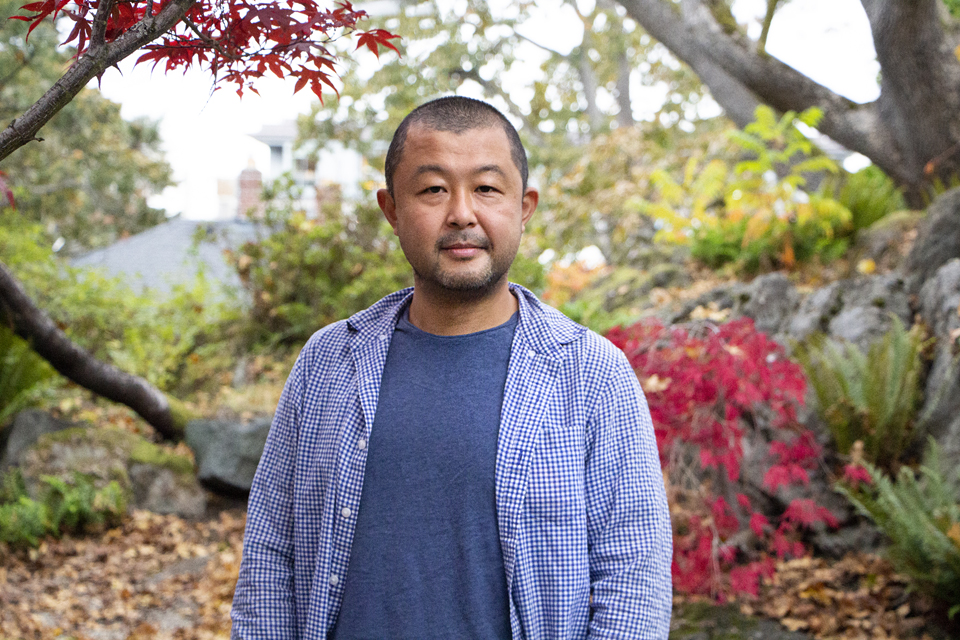Expert Q&A on “mobilizing finance” to achieve climate goals
Peter B. Gustavson School of Business

From outfitting highways with electric vehicle charging stations to building mammoth offshore wind farms, the move toward more sustainable energy sources and consumption requires massive financial investments in development and infrastructure.
So how can governments and industry achieve the 2021 United Nations Climate Change Conference (COP26) goal of “mobilizing finance” to promote sustainable energies and reduce our dependency on fossil fuels?
Takahiro Endo is the new Jarislowsky Japan Chair at UVic’s Centre for Asia-Pacific Initiatives (CAPI) and UVic’s Peter B. Gustavson School of Business. His research has investigated corporate lobbying in traditional and new economic sectors, the openness of the energy sector to innovators and the role of persuasive discourse in Japanese citizens’ vehicle energy choices.
Q. What are some of the biggest barriers to financing sustainable energy technology and how can they be overcome?
A. One of the big challenges relates to the involvement of many of the traditional energy producers in the sustainable energy sector through the establishment of subsidiaries or joint ventures with start-up firms. Bound by the relatively conservative ethos and operations of their parent companies, these enterprises do not usually aim for radical transformation of the energy mix. If we want to see a rapid and significant transformation of energy sources, it is vital to finance innovative and independent new players to the industry. However, it can often be difficult telling such “real challengers” apart from competitors that are controlled by legacy producers. Differentiating between them can require careful analysis of their respective worldviews and capital compositions.
Q. Which is a more powerful force in driving the process of disruption in energy sources and why: government regulation or the free market?
A. In democratic states, governmental regulation and the market tend to dynamically counterbalance one another, leading to progressive, but incremental, change. In authoritarian states, on the other hand, radical shifts towards renewables may be more possible. China, for example, is the biggest emitter of carbon by total volume but, at the same time, produces the most wind energy. China may indeed be a potential game changer if it decides to strongly prioritize renewable energies.
Q. How do major stakeholders — for example, political parties, environmental non-governmental organizations (NGOs) and industry — influence the adoption of renewable energy sources?
A. Coalitions are necessary for the widespread adoption of renewable energies. Political parties, NGOs and industrial actors have their own strengths and weaknesses. Coalitions among stakeholders can multiply strengths and mitigate weaknesses. It is vital for new players to actively network with political entities and NGOs to be viable contenders.
Q. Can you please explain your thoughts on the power of non-financial incentives, such as persuasive discourse, in influencing citizens’ energy choices?
A. I recently examined vehicle energy choice in Japan in comparison with EU countries. In Japan, as in the European Union, taxation on diesel has been far lower than on gasoline so there is a clear economic incentive for residents in Japan to buy diesel cars. Diesel also emits less carbon than gasoline. However, gasoline vehicles far outnumber diesel in Japan, but not in Europe. We attributed much of this difference to a persistent information campaign by the former governor of the Tokyo metropolitan government, who put primary emphasis on the relatively high particulate matter emissions of diesel vehicles and deflected attention away from their relatively low carbon emissions.
Persuasive discourse can be very powerful in influencing consumer choice.
—Takahiro Endo, the new Jarislowsky Japan Chair at UVic
This case illustrates how the soft power of persuasive discourse can sometimes supersede the hard power of economic incentives in influencing citizens’ energy choices.
Q. What suggestions would you give government officials who went to COP26 regarding finance and climate goals?A. Two primary issues that I see as important for governments to consider are the risks of nuclear energy and the reliability of renewable energies. Nuclear may be clean, in terms of the emission of carbon dioxide, and inexpensive in a material sense, but catastrophic accidents like those at Chernobyl, and Fukushima in my native country of Japan, illustrate the gravity of its potential costs.
Another main consideration is energy stability. Many renewable energies, currently, have weakness in stability as they are subject to weather conditions, which may prevent a consistent supply.
Therefore, finance may need to focus on not only generation of renewables but, also, their preservation through developments such as viable battery systems.

